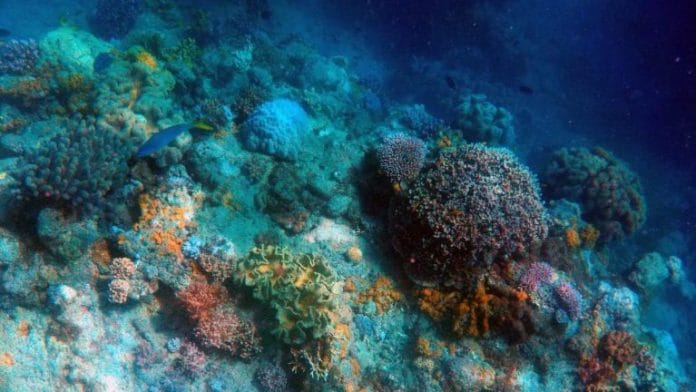The ocean is our lifeline – its health is essential to our health. Securing the ocean’s well-being will have positive impacts across many global challenges we face today such as poverty, hunger, human health, unemployment, inequality and more. Finding and elevating promising ocean innovations wherever they may be, connecting them and helping them scale is crucial to ensure we protect one of our planet’s most valuable assets.
In that vein, UpLink – a digital platform for scaling innovation and driving progress toward the Sustainable Development Goals – is proud to unveil its second cohort of ocean innovators.
To find these innovators, we launched our second Ocean Solutions Sprint alongside four partners: The International Union for Conservation of Nature (IUCN), The Nature Conservancy (TNC), the International Coral Reef Initiative (ICRI), and the Seychelles Conservation and Climate Adaptation Trust (SeyCCAT).
We believe these innovations have the potential to address some of the key opportunities in the ocean space today, such as protecting and restoring coral reefs, scaling restorative aquaculture, unearthing technologies for marine protection and helping invest in nature-based solutions.
Scientists say climate change and pollution could kill off the world’s coral reefs by 2100.
UpLink has launched a sprint to find innovations and solutions that will help protect our ocean.
To find out more, visit UpLink: https://t.co/pSYnZ2MAKk #sdi20 @WEFUpLink pic.twitter.com/zHNX7u3JD6
— World Economic Forum (@wef) September 21, 2020
Over the next few months, we will work with the cohort to help them scale their impact through mentoring opportunities, capacity building workshops, exposure and visibility, as well as introductions to experts and potential investors where relevant. These organisations will join a growing community of UpLink innovators who are benefiting from the platform.
We would also like to thank supporting partners from the investment side Aquaspark, The Blue Natural Capital Financing Facility (BNCFF), Blue Ocean Partners, Hatch and Katapult Ocean for their support during this challenge.
Also read: There are up to 14 million tonnes of microplastics on the seafloor — worse than we thought
Welcome to our new ocean innovators cohort:
Arc Marine’s innovative Reef Cubes can help boost large-scale coral restoration projects and provide eco-friendly marine habitats while also protecting man-made assets.
A new home for endangered sea animals.
? Read more: https://t.co/QWeJtsxNDo@WEFUpLink pic.twitter.com/nxKHUY2otR
— World Economic Forum (@wef) October 26, 2020
Atlantic Sea Farms is creating products made from sustainably farmed sea greens, while also expanding opportunities for fishing communities and helping them to mitigate the effects of ocean acidification.
Cascadia Seaweed provides healthy plant-based nutritional food, climate action and ocean regeneration, and economic resiliency for Indigenous communities through seaweed cultivation in British Columbia.
CHARM, the innovative coral farming robot, combines scientific research with computer automation to reduce costs, save time, and grow resilient coral colonies at economies of scale.
Kelp Blue is a restorative large-scale offshore kelp cultivation enterprise that produces sustainable agri-foods and bio-stimulants which displace environmentally damaging alternatives.
Mussel Farm Mechanization in Brazil aims to increase productivity and competitiveness of small-scale mussel farms in Santa Catarina, through the adoption of mechanized farming systems and the integration between farmers and processing companies.
This article was originally published in the World Economic Forum.
Also read: World was about to close deals that could save oceans, and then Covid changed everything






